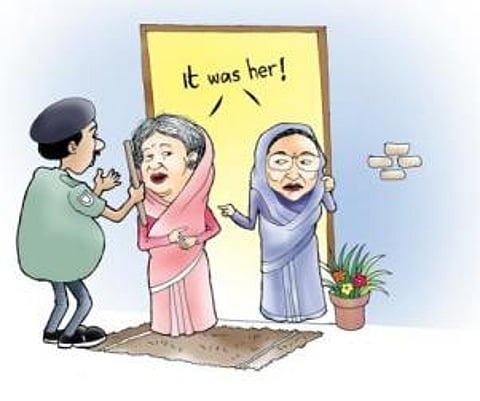The Dhaka regime’s messy surgery
Bangladesh's political orchestra is reaching a crescendo, at least for this passage. What comes next may be a long, deafening silence. As the two political dynasties were made to exit the country, the remonstrations of the two heads were heard far and wide. The military-backed interim government's tackling of its envisioned 'minus two' rescue plan for the polity has been neither smooth nor discreet. Despite the noises made out of entrenched political camps, however, it has become clear that there is no turning back for Bangladesh. The tables have been turned.
In January, when the military-backed regime took power with an initial 'emergency' mandate of 120 days (which will end on 10 May), there was no timeframe in place for elections. Chief Adviser Fakhruddin Ahmed and his military backers provided such a timeline – elections by the end of 2008 – almost as a gift on the eve of the Bengali New Year. But even as the chief adviser was delivering his address to the nation on 13 April, rumours were already rife of plans to exile Begum Khaleda Zia, chair of the Bangladesh Nationalist Party (BNP). Talk of Sheikh Hasina Wajed, president of the Awami League, being barred from entering the country was also being heard. For most of April, Dhaka was a city of rumours.

